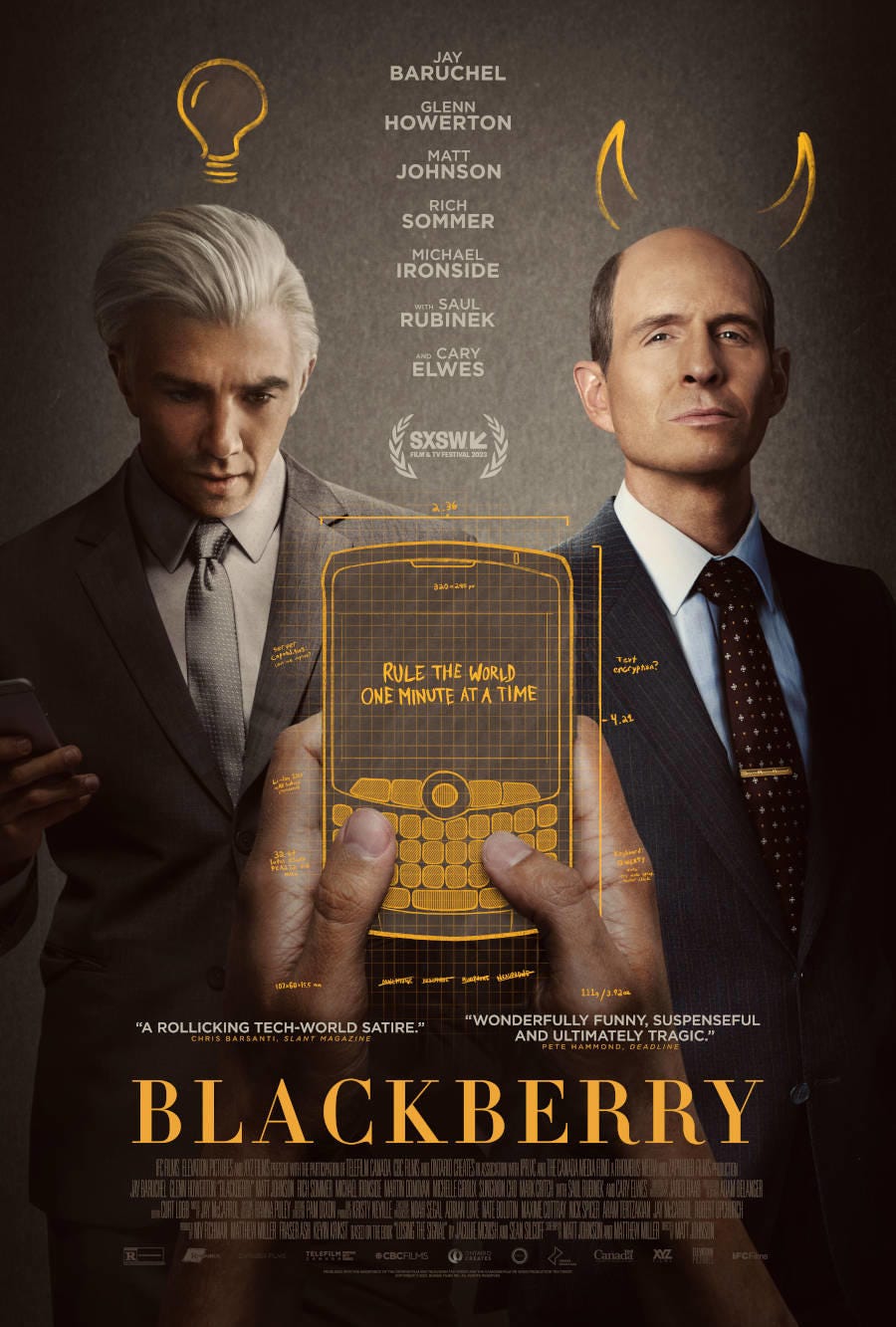Review: BlackBerry
The Greatest business film ever made... in Canada
So I saw a movie with my mom…
And we were the only ones in the theatre. I’d heard nothing about this movie at all. Just “oh are you up to anything, maybe there’s a movie on”… *let’s see* “Nope nothing… Just Guardians of the Galaxy 3. Oh wait… there’s a movie about Blackberry? Was that supposed to be any good?”



